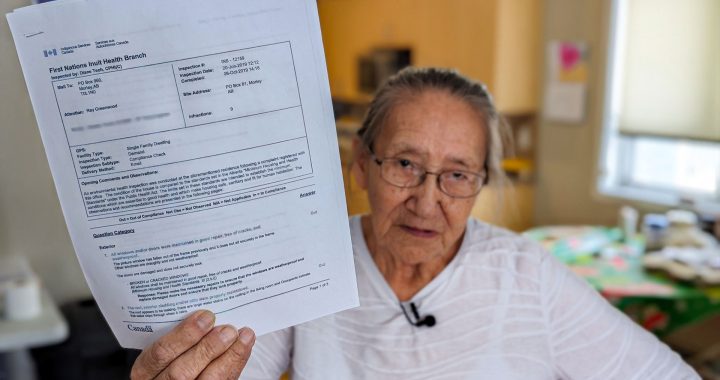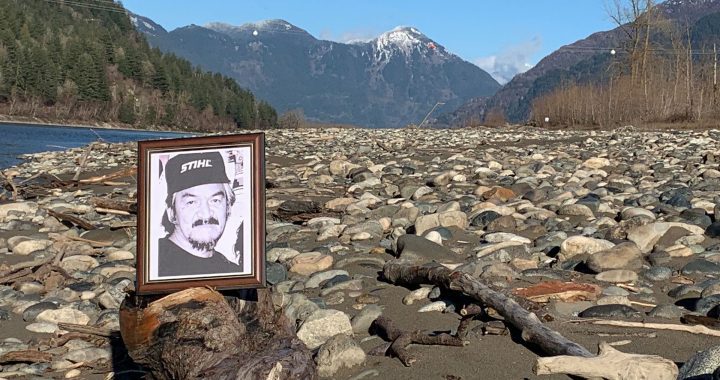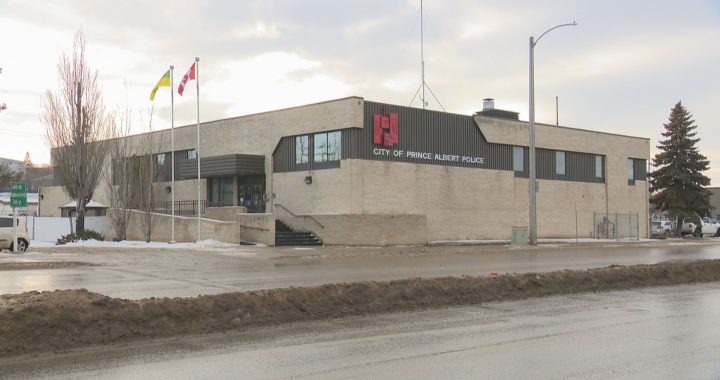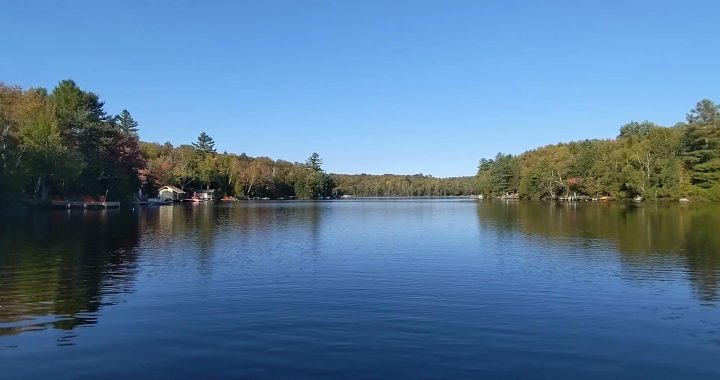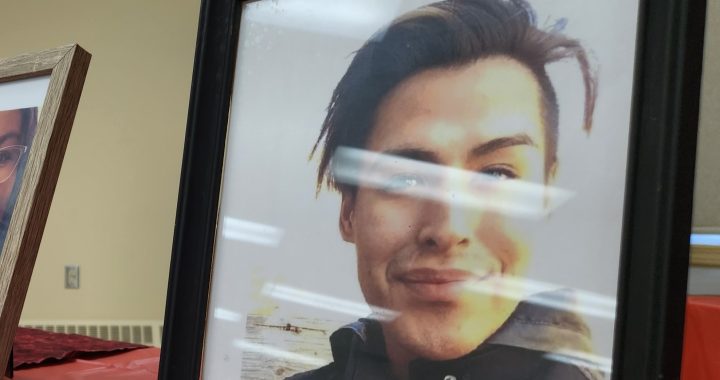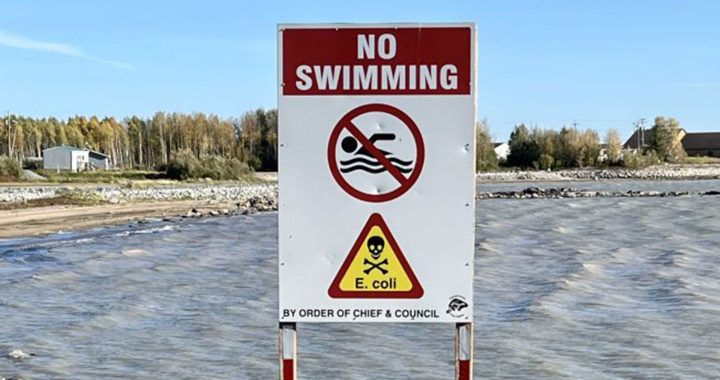Natteal Battiste pops open her trunk and grabs an armful of blankets and other supplies donated to support the Mi’kmaw who are asserting treaty rights to fish lobster in western Nova Scotia.
“It was a call that I put out on Facebook and there was an abundance of Black people that were quick to say, ‘okay, what do you need?’” said Natteal.
APTN Investigates: Racism Lives Here Too – Watch part 1 here.
It’s a beautiful day in late September; a break amidst weeks of ugly acts of racism, vandalism and confrontation over the Mi’kmaw fishery.
Natteal is Mi’kmaw and Black, from Acadia First Nation, an hour’s drive away from where the Mi’kmaq are fishing in St. Mary’s Bay.
“I lived in these parts,” said Natteal. “So, I understand that you need to have a profound strength within yourself to be able to survive down here.”

The Mi’kmaq have a treaty right to fish, hunt, and gather to earn a living. The Sipekne’katik First Nation launched its rights-based lobster fishery on Sept. 17.
The backlash from local Acadian commercial fish harvesters was swift.
On Oct. 13, an angry mob surrounded a lobster pound in West Pubnico, where Mi’kmaw fisherman Jason Marr stored his lobster.
“Got myself barricaded in the lobster pound here. There’s a couple hundred non-Natives out there,” said Marr in a livestream on Facebook.
“They said they won’t let me leave unless they have my lobsters.”
Marr got out, but non-Indigenous protesters destroyed much of his catch while RCMP officers watched.
“It’s come to the point where it’s a matter of, do our lives matter?” Sipekne’katik Chief Mike Sack said in a press conference with reporters. “This truly is systemic racism. If it was 300 of our people and 40 of theirs, that place would be full of cops.”
A few days after that protest, the same lobster pound Jason Marr had been in went up in flames.
In an emotional interview with APTN Investigates, Marr described just one of the racist messages he received, saying, “He hated me, I asked him why. He said, ‘cause you’re an Indian.’”
“For as long as I can remember, our people have been fighting for a right to fish,” said Brandon Maloney, Sipekne’katik’s fisheries manager at the time, now a newly-elected back councillor.
“We get so used to the racism, we almost accept it.”
All through September and October, Natteal Battiste’s social media was full of videos recorded by Mi’kmaq showing confrontations with Acadian fishermen.
“It was heartbreaking at first to be looking at videos and being like, man, like I walked the graduation stage with some of you guys,” she said.
“They’re still taught history from the lens of colonizers”
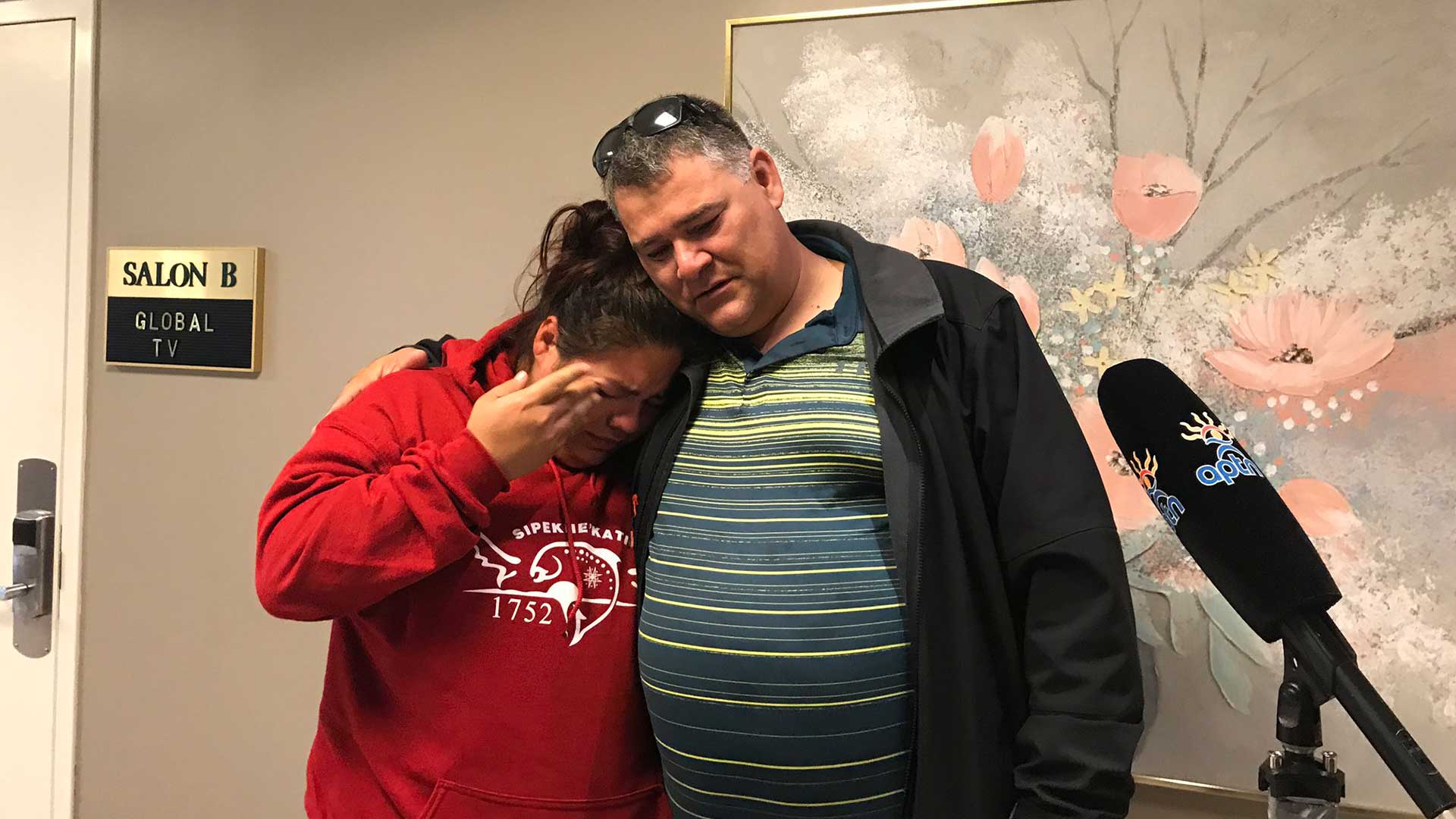
Natteal’s friends, Damardi Dixon and Shawntaya McLean, help load donations into the back of a truck – bottled water, tarps, and other supplies.
Damardi said he felt it was important to come to the wharf to show support for the Mi’kmaq.
“A lot of a lot of this hate that is being spread is just people that are uninformed of what’s going on,” said Damardi. “They’re still taught history from the lens of colonizers.”
As an African Nova Scotian, he knows what it’s like to face racism.
“Racism comes in different forms. It’s overt, or sometimes it’s hidden, but it’s really no different,” he said. “We’re all the same people.
“But you can’t be yourself,” Damardi adds. “You can’t be too Black or too Native because of someone else’s comfort level.”
For Shawntaya, her identity is shaped both by her experience as an African Nova Scotian, and a sense of cultural loss. Her grandmother was Mi’kmaw.
“But it was something I wasn’t fortunate enough to grow up in culturally and that has been a distinct kind of, sort of…” she struggled for the right word, nodding as Natteal interjected, “A direct result of colonization, is exactly what happened with her family.
“If colonization didn’t pan out the way that it did, there wouldn’t have been anything stopping her from knowing her background,” said Natteal. “But that’s racism in itself.”
“Racism is a white issue”
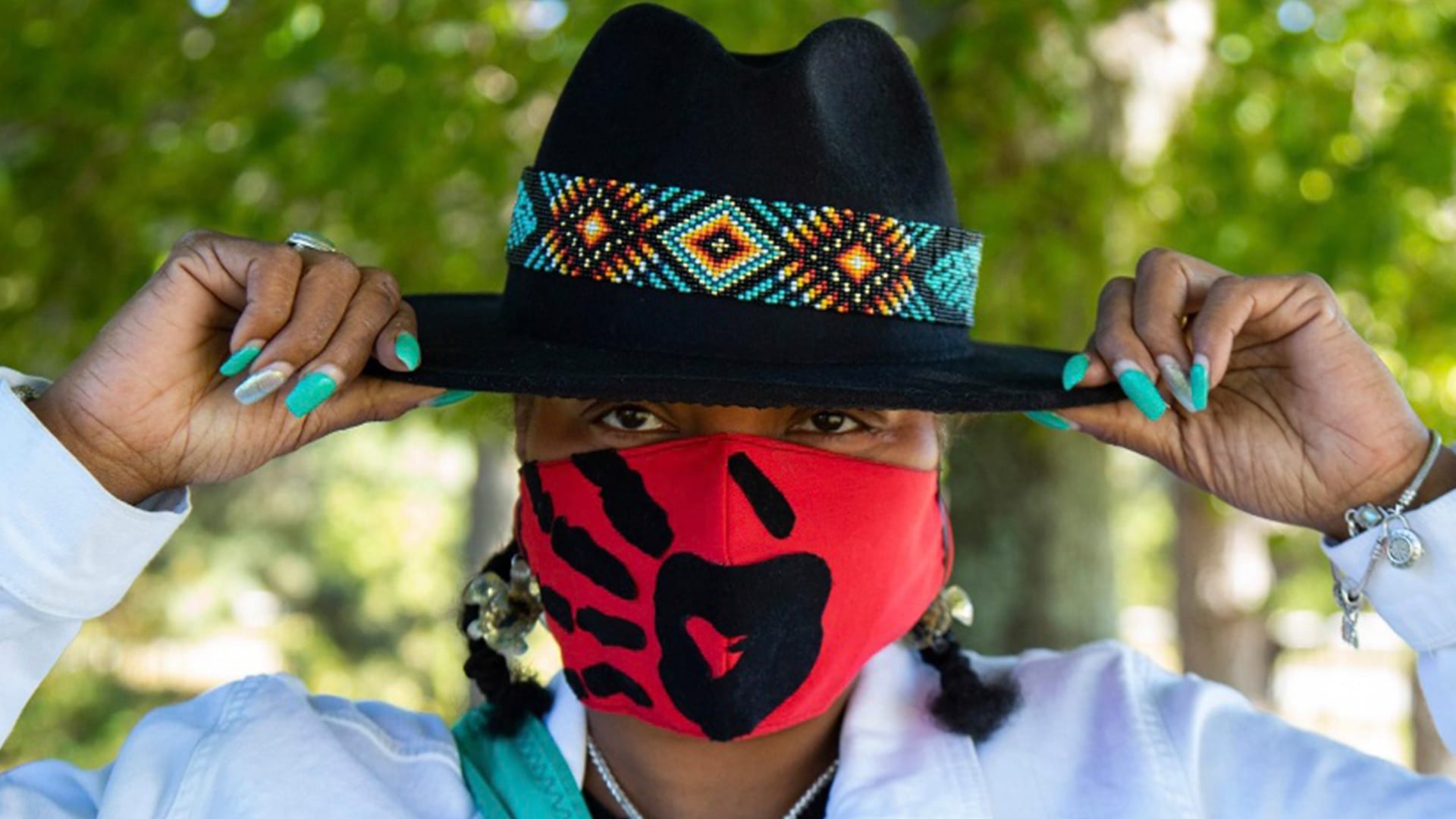
“There is nowhere that I’ve gone within a black community in Nova Scotia and have not found Black and Native people,” said Tonya Paris, an activist and artist based in Halifax.
Paris’ grandmother on one side of her family was Mi’kmaq, her grandmother on the other side is Cree.
She celebrates her roots in both Mi’kmaw and African Nova Scotian communities, historically connected for over 400 years.
“We’ve been together, neighbors every day. Blending, mixing, marrying for that long. It’s not going to change,” said Paris. “It’s only going to make us stronger to acknowledge that it gives us strength in numbers.”
Paris said the two marginalized groups face similar fights for social justice, from systemic racism in policing, and overincarceration, to blatant racism, like the Mi’kmaq have faced in the backlash against their fishery.
“Racism is a white issue that happens to affect Indigenous and Black people. It’s not our issue,” said Paris. “So, if it’s not our issue, we can’t end it.”
“We both can identify racism very easily”
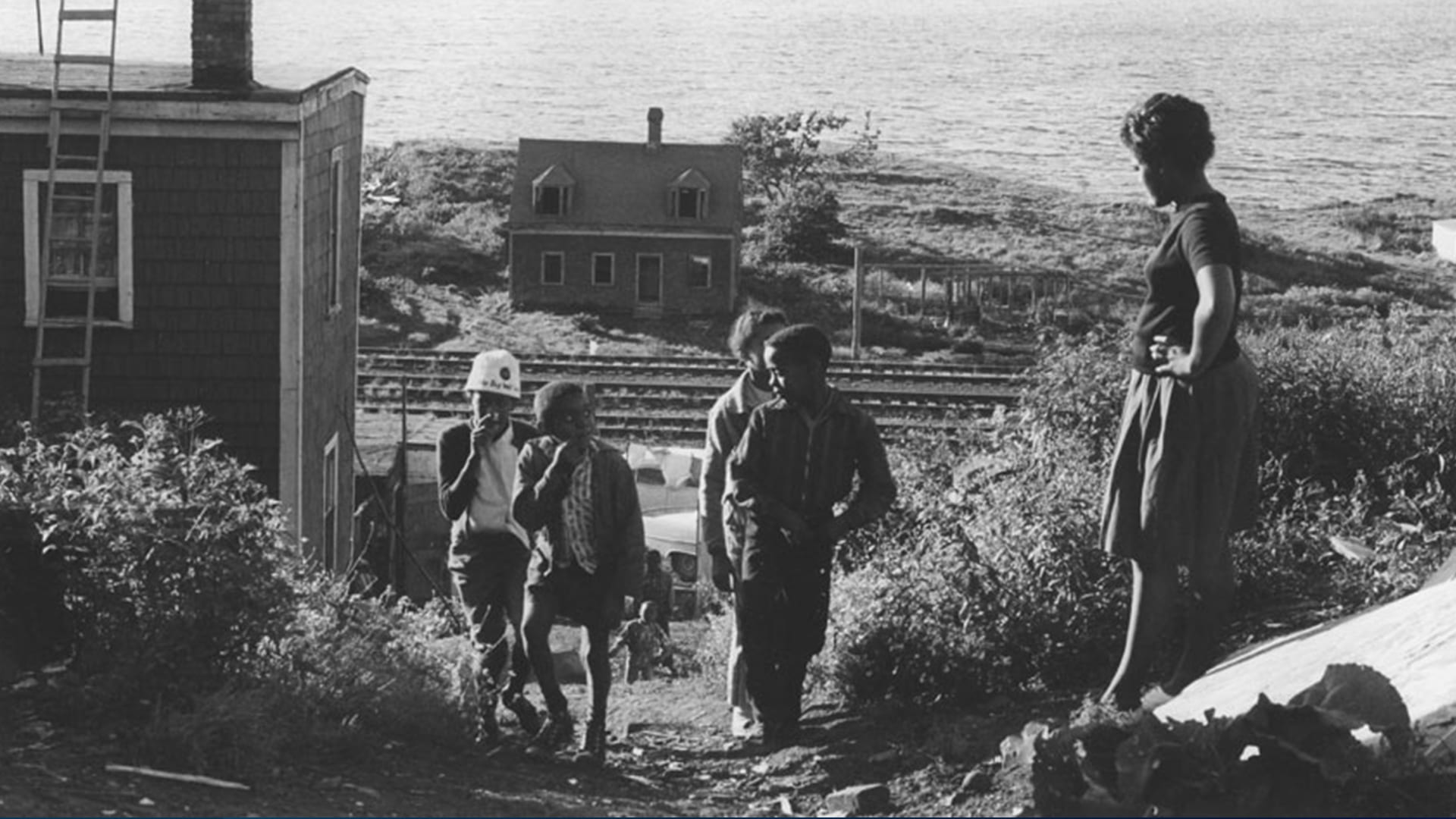
“When you’re a person of color, we have a saying here that Nova Scotia is the deep south of Canada,” said Joi Carvery-Taylor.
Joi’s ancestry is mixed: both white and Black. Her husband Richard Nevin Taylor is Mi’kmaw.
“There are more similarities than there are differences,” Joi said. “We both know what it’s like to be oppressed. We both can identify racism very easily.”
It’s a conversation they have with their teen-aged kids.
“We have discussions around the dinner table about these very topics so when they go into the world, they’re as prepared as they can be,” said Richard. “They’re going to feel the wrath of hatred and anger and all these things about Indigenous people, about Black people.”
And 2020 has been a difficult year. Amidst a pandemic, the world witnessed the death of George Floyd as a Minneapolis police officer kneeled on his neck for over eight minutes.
“I spent most of 2020 just crying, like seriously, like every time I think about George Floyd calling for his mother, I’m like, oh my God, my heart as a mother, I can’t handle that,” said Joi.
Read More:
Within a month of Floyd’s death, two Indigenous people were killed by police in New Brunswick during wellness checks – Chantel Moore from Tla-o-qui-aht First Nation in British Columbia, and Rodney Levi, who was Mi’kmaw from Metepenagiag First Nation.
“And the Mi’kmaw community is also hurting just as badly. And so our household is both,” said Joi. Months later, the emotions still come to the fore and she blinks back tears. “It’s hard, yeah. It’s heavy, you know? You wear it all the time.”
But Joi is hopeful, too. The Black Lives Matter movement has gained momentum around the world and here at home.
One of the top-selling books of 2020 is Robin DiAngelo’s White Fragility: Why It’s So Hard for White People to Talk About Racism.
Joi is working on her own book featuring photographs and stories of Elders who lived in Africville, a Black settlement dating back to the mid-1800s. It’s not well known, but it was also home to Mi’kmaw people.
The tight-knit community was viewed as the ‘slums’ by outsiders and in 1964 the City of Halifax voted to remove the residents of Africville and by 1970 it was demolished.
“There’s so much joy in Africville, and all you hear is the bad,” said Joi, whose father grew up in Africville. “I really hope that my book gives people a balanced perspective so they can just see our community differently.”






